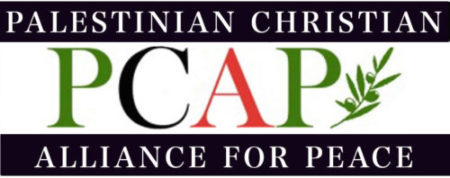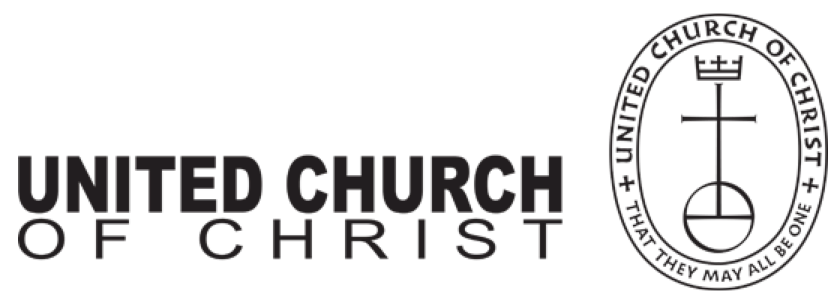LOOKING FOR NEWS IN OTHER YEARS?
SEE THE MENU ON THE LEFT.
ON THIS PAGE:
• Dual Conferences in Palestine: Kairos Palestine 10th Anniversary Conference and Sabeel International Gathering
• Straining Out a Gnat but Swallowing a Camel – Rev. Alex Awad describes what is really happening to Christians in Palestine
• World Week for Peace in Palestine Israel (WWPPI) 2019:
Humanity and Equality in God’s Creation
• Statements on the Bahrain Economic Workshop and U.S. “Deal of the Century:”
Palestinian Alliance for Peace (PCAP): “The Palestinian people will not be bribed into submission”
Related items: Statements on other websites:
From Churches for Middle East Peace (CMEP):
Kushner’s Foreign Investment Plan Is No Substitute for Palestinian Freedom
From American Muslims for Palestine:
Trump’s Middle East Peace Plan Is Neither a Plan nor Will It Lead to Peace
• Jerusalem from the Lens of a Native Son — Ghettoization and Pauperization, by Philip Farah
• Unitarian Universalist Action of Immediate Witness:
Support Our First Amendment Right to Boycott
UUJME Flyer:“Support Our First Amendment Right to Boycott”
UUJME Petition in Support of Our First Amendment Right of Free Speech
• UCC General Synod 2019: Resolution on “Global Forced Migration” highlights Palestinian refugees, funding UNRWA
• UCC PIN Statement: “The Kairos Moment Now: Toward a Human Rights Approach to a Just Peace in Palestine”
• World Council of Churches write and speak to UN on rising Israeli destruction and violence in Palestinian territory
• US and Palestinian Christians meet, address damage by U.S., commit to united actions
• German Parliament’s resolution says BDS movement is anti-Semitic; resolution denounced by Christians and all of Palestinian society
Kairos Palestine Statement: A Call for the German Bundestag to Reverse its Resolution
Palestinian BDS National Committee Statement: Palestinians unanimously condemn German Parliament’s attack
• At United Nations, Israeli Ambassador Uses Bible to Justify Land Theft
• Global Kairos Petition Delivered to Israeli Embassies across U.S. for the commemoration of Nakba Day
• Do No Harm! Palestinian Society Calls to All Tourists and Religious Pilgrims
• Churches and Christian Organizations Reject Trump’s Recognition of Israeli Annexation of Golan Heights
• CMEP Statement: Recognizing Israeli Annexation of Golan Heights Another Dangerous Example of One-Sided U.S. Policy
• Mainline Protestants and Divestment as International Economic Activism
• Two Ecumenical Calls for Funding UNRWA, to U.S. President and Congress
• Fifteen Faith Organizations Warn Americans: our right to free speech is under attack
![]()
____
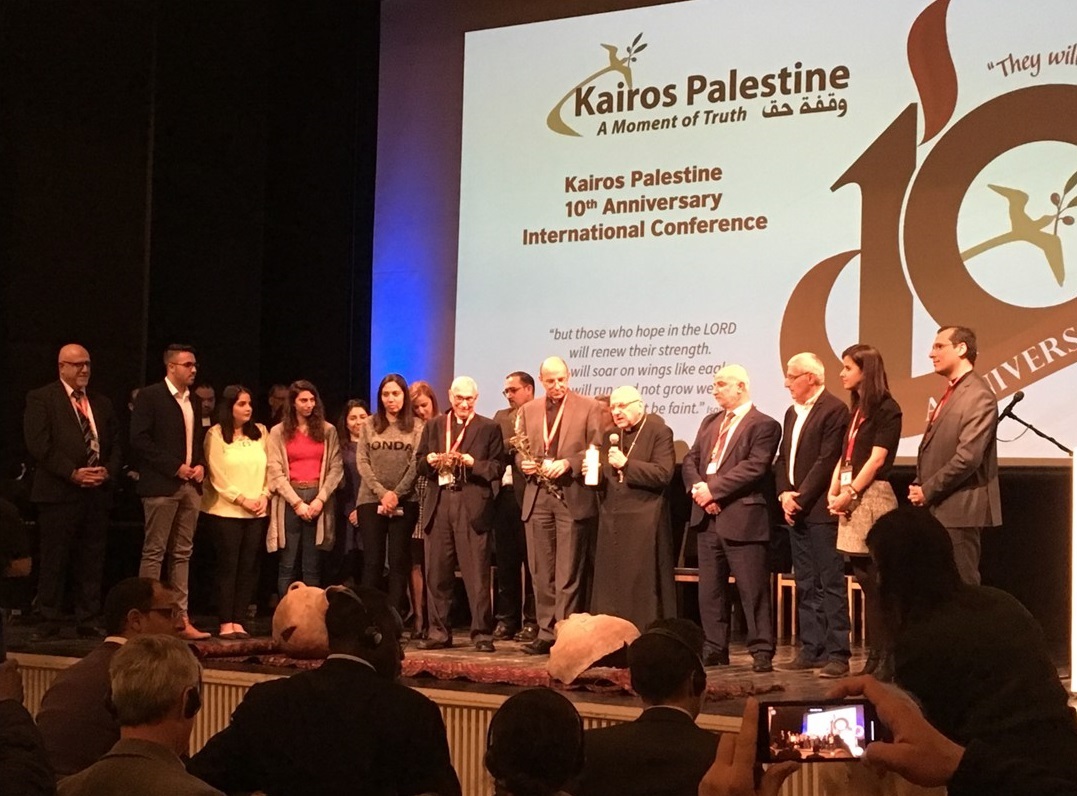 Dual Conferences in Palestine: Kairos Palestine 10th Anniversary Conference and Sabeel International Gathering
Dual Conferences in Palestine: Kairos Palestine 10th Anniversary Conference and Sabeel International Gathering
29 November-7 December – The two premier Christian organizations in Palestine held their annual events back-to-back this year, creating a memorable experience for some 350 international supporters. We have the Kairos Palestine Conference Statement and 10th anniversary video, plus excellent reports from the UK, the US, and Australia.
 “They will run and not grow weary”
“They will run and not grow weary”
Kairos Palestine 10th Anniversary Conference Statement & Call to Action
EXCERPTS:
“Meeting in Bethlehem, the birthplace of Jesus, we are over 350 persons— women and men, young and old, lay and clergy, Palestinians and friends from all over the world—reaching out to the Church on the Tenth Anniversary of Kairos Palestine: A Moment of Truth.
“Since the launch of “A Moment of Truth” ten years ago, life in Palestine has rapidly deteriorated under the illegal occupation by the State of Israel. The oppression is more aggressive and brutal.
….We are experiencing the continued dispossession of our land, our freedom and our human rights.
….While there have been strong, prophetic responses from the global Church….
For the most part, the global Church is failing us.
“We are standing as if on the edge of a cliff, looking into an abyss.
“….So, like those who stand watch upon the tower, we repeat our call and cry out again for your solidarity, your earnest prayers and your commitment to take action. Stand up and speak out in your own setting to insist on a just peace:
• Vigorously defend the rights of Palestinians…[and] all forms of creative and non-violent resistance including BDS….
• Recognize Israel as an apartheid state in terms of international law….
• …include the occupation and injustices in Palestine and Israel as part of any interfaith dialogue;
• …lead campaigns for church leaders and pilgrims to visit Bethlehem and other Palestinian communities in partnership with the Palestinian tourism sector…
”
See this statement and call to action
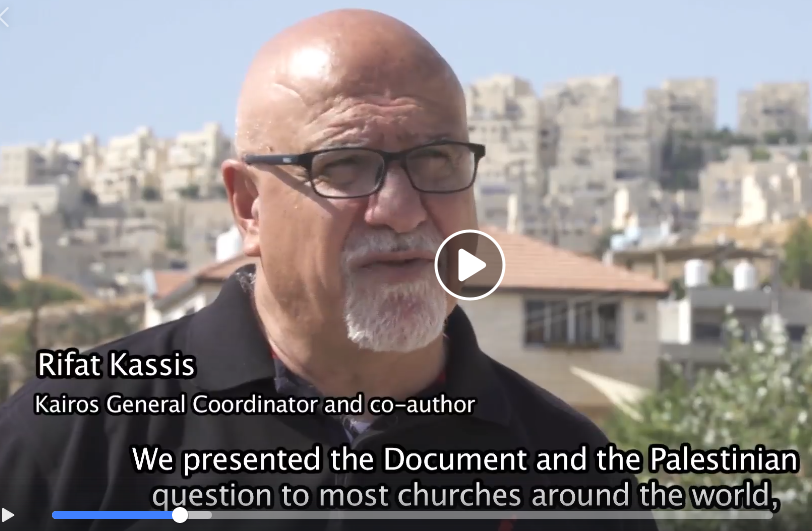
A Video from Kairos Palestine: Ten Years of Prophetic Voice (6 mins)
Presenting the movement that grew from the Kairos Palestine Document, the meaning of this Kairos moment, some that has been accomplished in the last 10 years, and Palestinian Chrisitan leaders young and old.
See the video on Facebook; Like and Share it!
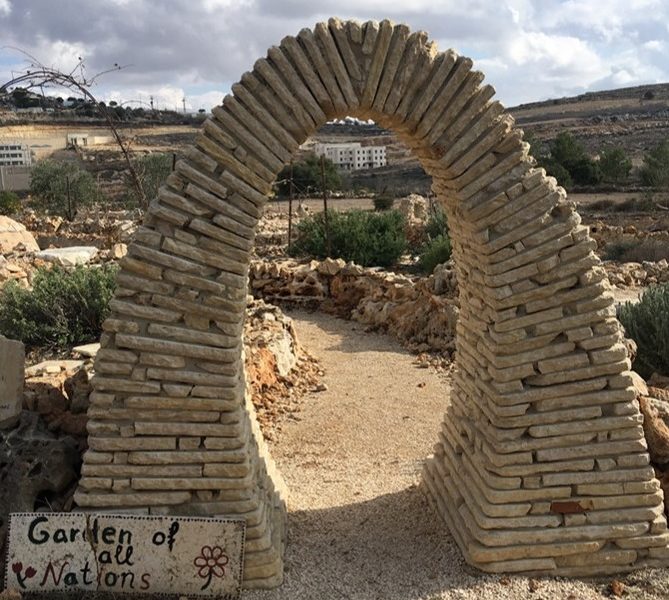
Reflections from Palestine
By Charlotte Marshall, United Kingdom
EXCERPTS:
“….It is difficult to see how I might summarise the next 9 days, and all of the rich, diverse, human, political, social, and religious topics covered in both conferences. The Kairos Palestine 10th Anniversary was both a celebration and a lament. So much achieved by Kairos Palestine, and all of the global Kairos movements around the world standing in solidarity with them. One of the most poignant moments for me was to see the current Kairos team handing over the Kairos movement to the younger generation – symbolised by passing on a lit candle. At the same time, we lamented the lack of response by many of the global churches to the Kairos call for justice, and the on-going deterioration of the situation in Palestine. This year in particular has seen several catastrophic developments….
“….Kairos for Global Justice began a few years ago, and was the advent of a coordinated effort to gather the various global Kairos networks together, to plan joint actions, campaigns, and theological reflections, and consider how we might both support and resource one another. Since its inception we have gathered each year to create an action plan….
“….what inspired me the most from our discussions this year at the conference was the idea of calling the global Church into ‘Status Confessionis’ regarding the situation in Palestine. Most well-known through the work of Bonhoeffer and his call to the German Church during Nazi rule, it literally means to call the Church to a ‘state of confessing,’ where there is a dire situation in which the church must stand up for the integrity of the gospel and the authority of the God it confesses.
“….Following the Kairos Conference was Sabeel’s first international Gathering – a new format designed to work in partnership with many organisations in Palestine, to bring participants the most up-to-date analysis.”
Read the full report
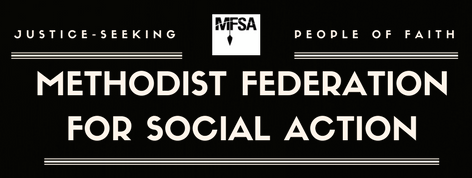 MFSA Advent Devotion Week 4
MFSA Advent Devotion Week 4
By Bridget Cabrera, United States
Executive Director, MFSA (Methodist Federation for Social Action)
EXCERPTS:
“Over Thanksgiving and the whole first week of December, I had the opportunity to attend the 10th Anniversary of the Kairos Document and the International Sabeel Conference in Bethlehem, Palestine….
This was not my first time in the area; I had been twice before, but it had been nearly ten years since my last trip. I wish I could say that life there seemed better than before or that there has been progress made toward peace. Unfortunately, life on the ground is worse. One example is the checkpoints….
“It is hard not to notice the rise of religious extremism, white supremacy, racism, capitalism, colonialism, and nationalism happening all over the world in addition to the rise in Christian Zionism….The use of religion to justify oppression is a manipulation of faith. Faith has always been held and developed by the marginalized and oppressed. For it to be used by the powerful to oppress the marginalized is in direct opposition to the Gospel.
“Many people travel here to the Holy land to connect more with God by walking in the land where Jesus walked. As always I didn’t see God in the building or the stone, nor did I see God in the historic sites. Frankly, the commercialization of the holy sites being a booming business is offputting. Where did I see God? In the eyes and the stories of the Palestinian people. A people living under oppression with no end in sight but who somehow continue to have hope and continue to work for justice. ”
See the report
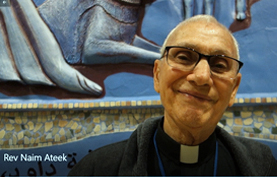 PIEN Quarterly – December 2019
PIEN Quarterly – December 2019
Palestine Israel Ecumenical Network, Australia
This edition of the e-quarterly focuses on the recent gatherings in Palestine.
It also includes a video message from Rev. Naim Ateek, founder of Sabeel.
EXCERPTS:
“….The Conference was spent reflecting and evaluating on the past 10 years by looking at the historical, political and ecumenical changes that have occurred during this time. Despairingly the feedback was that the situation has only got worse, made more so with the installation of the Trump administration and the various announcements and blatant support for Israel that has ensued.
“The Palestinian leaders commented that they and the global network need to review the way we work, to simplify the message and have clear objectives and practical actions. It was suggested that the Kairos document could be refashioned in a condensed form with a revived look and format including videos, podcasts etc. to capture the attention of the younger generation.
“They lamented that on the whole, church hierarchy in Palestine, for various reasons, have not fully endorsed or supported the Kairos document. This lack of support is something Kairos Palestine plans to address more directly with the church hierarchy in an effort for these Palestinian churches to then speak up and engage the wider global church community.
….
“Sabeel held its first International Gathering under a new format from previous times. The Conference was held in partnership with other organisations in Palestine and showcased their work as well as providing analysis and information on the current situation in Palestine. Along
with lecture style presentations, participants were taken on field trips to Churches, institutions and organisations both in Bethlehem and Jerusalem and were also treated to some excellent cultural activities….
“The climax to the 5 day Conference was visiting Dar Al-Kalima University to watch amazing short films and to sample the culinary delights of their students. Rev Dr Mitri Raheb ended with a brilliant bible reflection on the Myth of the Christmas Story. Palestinian theologians have a unique way of expounding on the biblical text that bring out the cultural and political context so aptly.
”
See more in this e-newsletter
» BACK TO TOP «
Straining Out a Gnat but Swallowing a Camel
by Rev. Alex Awad, Retired Palestinian pastor, College Dean, and UMC missionary
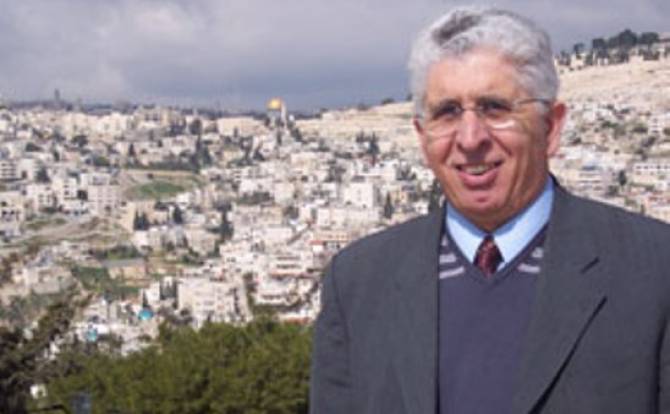 ISRAEL’S APOLOGISTS never seem to tire of pointing a finger of accusation at the Palestinian Authority (PA) with allegations that the PA persecutes Palestinian Christians. Hence, they say, the decline of the indigenous Christian population in the Palestinian territories.
ISRAEL’S APOLOGISTS never seem to tire of pointing a finger of accusation at the Palestinian Authority (PA) with allegations that the PA persecutes Palestinian Christians. Hence, they say, the decline of the indigenous Christian population in the Palestinian territories.
Jesus had words to describe such accusers: “You blind guides! You strain out a gnat but swallow a camel.” (Matthew 23:24 NIV.) The camel in the room is the occupation, and Israel’s apologists want to shift blame from the massive crimes of the occupation to place the PA in the defendant’s seat….
….Regrettably, many of these accusations are generated by the Israeli Ministry of (mis)Information and then handed to Christian Zionists who stand ready and eager to receive these accusations and use them to smear the reputation of the PA without checking the facts. Here are facts that any decent researcher can investigate and verify:…. Read the article on Palestine Portal
» BACK TO TOP «
World Week for Peace in Palestine Israel (WWPPI) 2019
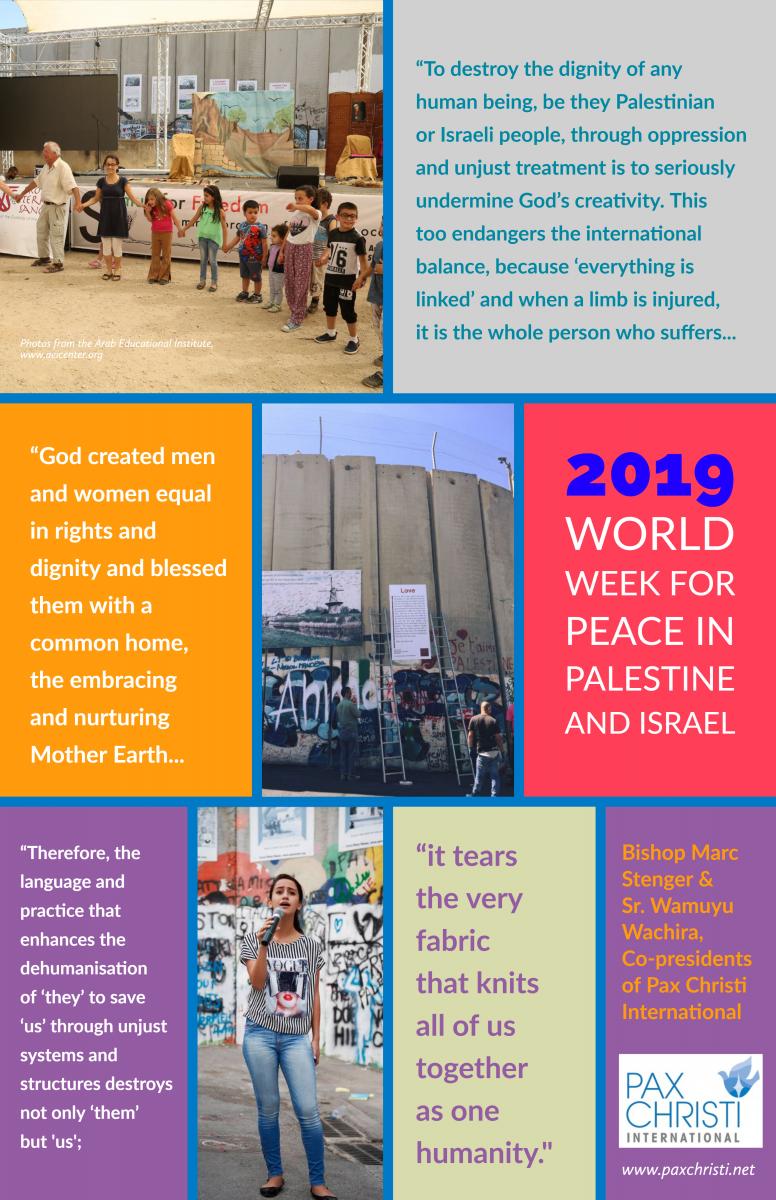 This annual Christian global awareness week offers resources that churches can use in September and throughout the year. The theme for the WWPPI 2019 is: “Humanity and equality in God’s creation.” Organized by the World Council of Churches, each year during the week that includes the International Day of Peace (21 September), churches, related organizations, congregations, and people of faith are encouraged to participate in worship services, educational events, and acts of support for a just and sustainable peace for both Palestinians and Israelis.
This annual Christian global awareness week offers resources that churches can use in September and throughout the year. The theme for the WWPPI 2019 is: “Humanity and equality in God’s creation.” Organized by the World Council of Churches, each year during the week that includes the International Day of Peace (21 September), churches, related organizations, congregations, and people of faith are encouraged to participate in worship services, educational events, and acts of support for a just and sustainable peace for both Palestinians and Israelis.
This year’s theme has been chosen to challenge racism, xenophobia, stigmatization, exclusion driven by populist policies and other growing trends. The aim is to inspire and revive concern for the human dignity of all people equally, regardless of ethnic, religious or political differences, and the struggle for the realization of the equal and inalienable human rights of all.
“The theme has a special immediacy in the context of the Israeli-Palestinian conflict and the unfulfilled search for sustainable peace based on the recognition of the inalienable human rights of all people in the region,” says WCC general secretary Rev. Dr Olav Fykse Tveit.
Get details and resources
See more resources from Pax Christi in the UK
» BACK TO TOP «
Statement by PCAP on the upcoming Bahrain Economic Conference
From the Palestinian Christian Alliance for Peace (PCAP) – June 2019
See it at the PCAP website
The Trump administration is convening an “economic workshop” to be held in Bahrain on June 25 – 26. The purported purpose of this conference is to implement an economic assistance program similar to the “Marshall Plan” with the goal of providing economic development aid to help boost and sustain a viable Palestinian economy. Although fundamentally there is nothing wrong in holding an economic conference by itself, this particular conference is part of Trump’s so called “Deal of the Century”, in which economic aid is contingent on the Palestinian leadership to sign on to such an agreement. The Palestinian people will not be bribed into submission or relinquish their right for full sovereignty over the West Bank and East Jerusalem and to the right of return.
The Trump Administration is putting the cart before the horse because no economic assistance program can ever succeed if the Palestinian people do not have their right to govern themselves in a full sovereign nation with all its institutions. Investors prefer to operate in a stable and predictable legal and political environment with clearly defined processes for the movement of people, goods and capital. Therefore, developing the Palestinian economy would be a positive element in a peace agreement, but cannot be a substitute for it.
The Palestinians in occupied Palestine and in the diaspora have high quality human capital, an educated and resourceful population, a tech-savvy young population and a strong inherent entrepreneurship culture. With these characteristics and an economic environment based on tourism, agriculture, international trade, and hightech knowhow, they can build the Palestinian economy on their own once the barriers of occupation and the repressive system that comes with it are removed.
We call on the faith-based community to join us in demanding the full rights of the Palestinian people to live in their own sovereign state with peace and dignity.
“Blessed are they which are persecuted for righteousness’ sake: for theirs is the kingdom of heaven.” — Mathew 5:9 v. 10
Board of the Palestinian Christian Alliance for Peace (PCAP)
» BACK TO TOP «
 Jerusalem from the Lens of a Native Son — Ghettoization and Pauperization
Jerusalem from the Lens of a Native Son — Ghettoization and Pauperization
by Philip Farah
August 2019 – Last month, I participated in an Eyewitness Palestine delegation of 22 Americans. Over a 10-day period, our intensive tour took us to cities and villages all over Palestine/Israel. We met with over 22 groups involved in various forms of resistance to Israeli domination. Our home base was Jerusalem, the city where I was born and spent the first 27 years of my life before emigrating to the U.S. in 1978.
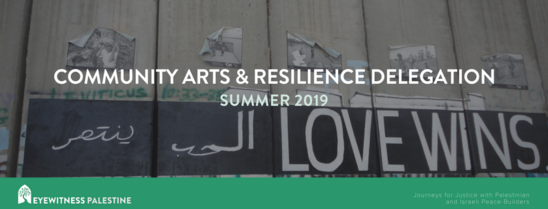 East Jerusalem had been—overall– a very pleasant city to live before the Israeli occupation of 1967. It was a small city of about 65,000 people, but with strong connections to nearby suburbs and villages. It was the main transportation hub for all the West Bank, and hence a major commercial center. Its status as the home of al-Aqsa Mosques and the Holy Sepulcher has always made it the center of life of all Palestinians— physically for its inhabitants, and spiritually or culturally for all Palestinians. Because of its spiritual importance, it has also always been a far more cosmopolitan place than most cities of its size anywhere in the world.
East Jerusalem had been—overall– a very pleasant city to live before the Israeli occupation of 1967. It was a small city of about 65,000 people, but with strong connections to nearby suburbs and villages. It was the main transportation hub for all the West Bank, and hence a major commercial center. Its status as the home of al-Aqsa Mosques and the Holy Sepulcher has always made it the center of life of all Palestinians— physically for its inhabitants, and spiritually or culturally for all Palestinians. Because of its spiritual importance, it has also always been a far more cosmopolitan place than most cities of its size anywhere in the world.
This was the Jerusalem of my childhood and youth…. ….
Today, only the Gaza Strip and the so-called H2 section of the Palestinian city of Hebron surpass East Jerusalem in the sense of strangulation that the Palestinians feel under Israeli domination.
Read the full article on Palestine Portal
» BACK TO TOP «
Unitarian Universalist Action of Immediate Witness:
Support Our First Amendment Right to Boycott
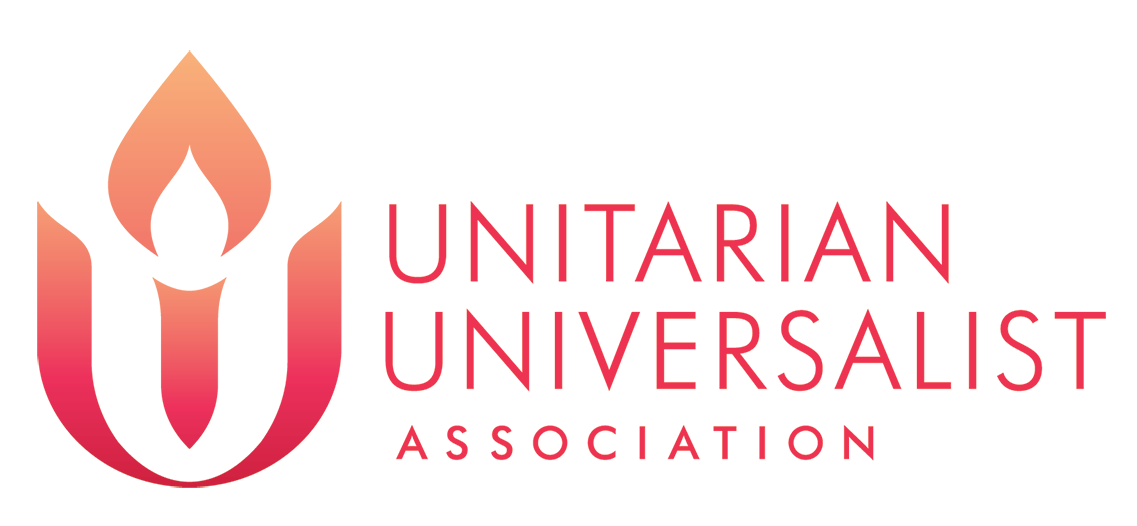 An Action of Immediate Witness at the Unitarian Universalist Association 2019 General Assembly, sponsored by Unitarian Universalists for Justice in the Middle East (UUJME)
An Action of Immediate Witness at the Unitarian Universalist Association 2019 General Assembly, sponsored by Unitarian Universalists for Justice in the Middle East (UUJME)
This Action of Immediate Witness calls on Unitarian Universalists and UU organizations to support our constitutionally protected right to boycott. The movement for Palestinian human rights has grown stronger in recent years with student groups, faith groups, unions and academic associations all coming out in support of Palestinian justice, and in many cases calling for boycotts and divestment from corporations complicit in violations of Palestinian human rights.
This growth in support for Palestinian rights has led to a backlash from all those who are threatened by criticism of Israel. The backlash has taken many forms, including a major effort to damage the movement for Palestinian rights with legislation aimed at intimidating or even criminalizing participation in boycotts directed at changing Israeli behavior. Divestment is a kind of boycott and much of the legislation refers to divestment as well as to boycotts.
Since 2014 over 100 measures targeting the use of boycotts in support of Palestinian rights have been introduced at local, state and federal levels. Twenty-seven different states have adopted such laws. Several such bills have also achieved wide support in the US Congress, although no bill has as yet passed both houses to become law. Some of the more extreme federal legislation that has been proposed calls for prison sentences of twenty years and fines of one million dollars. (see https://palestinelegal.org/righttoboycott )
This massive effort to pass anti-boycott legislation is disturbing given that the US Supreme Court determined in 1982 that boycotts are a form of free speech protected by the First Amendment (NAACP vs Claiborne Hardware), and given that such laws have recently been declared unconstitutional by Federal courts in Kansas, Arizona and Texas. The ACLU takes no position on Palestinian rights but has strongly opposed all of the anti-boycott legislation (see https://www.aclu.org/letter/aclu-letter-opposing-revised-version-israel-anti-boycott-act ).
The initiators of this anti-boycott legislation are not really concerned about constitutionality. They know that cases on appeal may take years to reach the Supreme Court and in the meantime their legislation will serve to frighten off those wishing to support Palestinian human rights with the time-honored, non-violent and constitutional means of boycotts.
But we must recognize, along with the ACLU, that all of us are threatened by this attack on our fundamental rights. Today it is supporters of Palestinians who are threatened, tomorrow it may be supporters of farm workers, Black Americans, indigenous people, immigrants, LGBTQIA people or prisoners. Broad opposition to these anti-boycott laws should be based on their unconstitutional, anti-democratic character and separate from one’s views concerning how to support Palestinians.
This Action of Immediate Witness calls on Unitarian Universalist and UU organizations to oppose these anti-boycott laws by reaching out to their representatives at state and federal levels. We also ask UUs to sign UUJME’s petition [see it below] calling on Congress to oppose this legislation (see https://tinyurl.com/defendrighttoboycott) or collect signatures via a paper version.
https://tinyurl.com/defendrighttoboycott-paper and mail them to the indicated address.
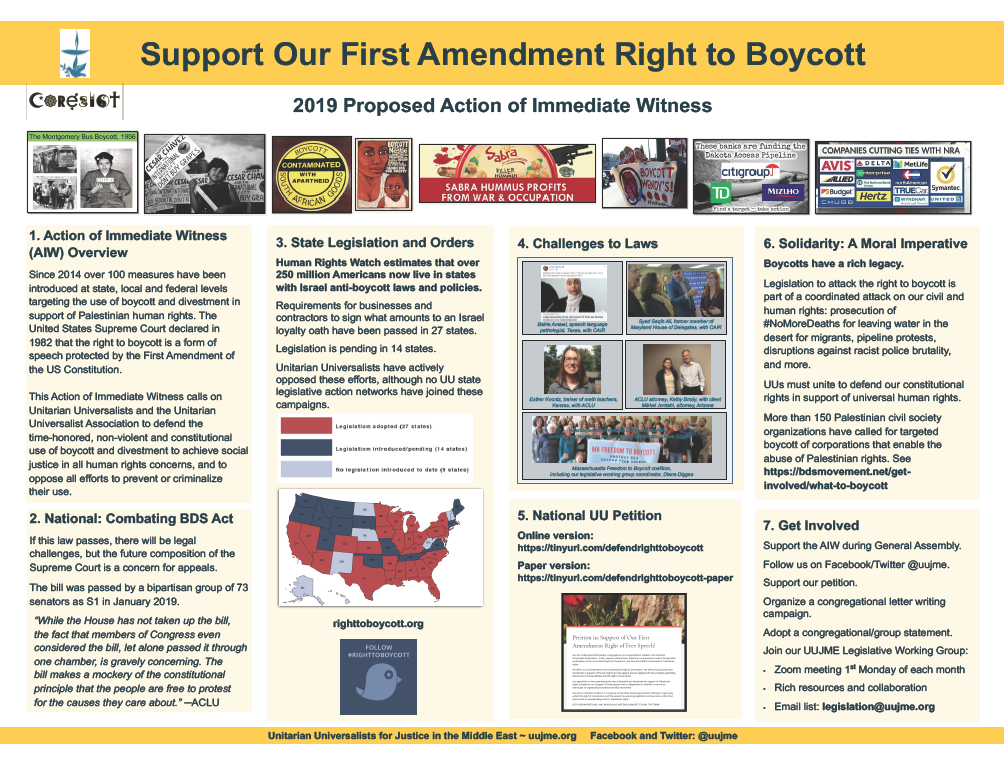
UUJME PETITION in Support of Our First Amendment Right of Free Speech!

We, the undersigned individuals, congregations, and organizations related to the Unitarian Universalist Association (UUA), oppose national laws, state laws, and executive orders that penalize participation in the nonviolent Boycott, Divestment, and Sanctions (BDS) movement for Palestinian rights.
We affirm our commitment to the constitutional right to free speech. We affirm that boycotts and divestment in support of human rights are free speech and are aligned with UU principles upholding democracy in human affairs and the right of conscience.Our opposition to laws penalizing the use of boycotts and divestment in support of Palestinian rights is based on our support for free speech and is independent of whether or not we as individuals or organizations endorse the BDS movement.
We call on members of the U.S. Congress and all other elected government officials to vigorously uphold the right of conscience and free speech by opposing legislation and executive orders that restrict and/or penalize boycotts for Palestinian rights. UU ORGANIZATIONS AND INDIVIDUALS ARE ENCOURAGED TO SIGN THE FORM!
» BACK TO TOP «
UCC General Synod 2019: Resolution on “Global Forced Migration” highlights Palestinian refugees, funding UNRWA
6 July 2019 – This report draws from the text of the resolution that was submitted to the 2019 General Synod, which had some minor amendments before it was passed, the final version not yet having been posted online. We will update this report as needed when the final version is available.In June 2019, the General Synod of the United Church of Christ (UCC) adopted the resolution ”Addressing the State of Global Forced Migration” which had been submitted the UCC Board.
Along with refugees in Latin America, Syria and Iraq, southern Asia. and other troubled regions, the resolution specifically mentions “Generations of Palestinian refugees displaced and dispossessed of their homes and 124 property following the wars of 1948 and 1967, in the Middle East and beyond.” It urges church members to act through “advocacy for the rights of refugees everywhere based on the Convention Relating to the 158 Status of Refugees (1951); and for Palestinian refugees specifically as stipulated in UN 159 General Assembly Resolution 194 (1948), and for continued US funding for the United 160 Nations Relief and Works Agency.”The Summary included in this resolution:
This resolution draws the church’s attention to the broad scope of unprecedented and massive displacement worldwide, including the variety of causes, the impact on human beings, and the responses of partners in the US and around the world, along with underlying attitudes of racism, xenophobia, and bigotry in the debates and discourse. It calls the United Church of Christ to continue to pray and learn about the current state of global migration, to take actions related to US policy, and to support global and domestic partners engaged in response; and it affirms our rejection of attitudes, discourse, and actions that discriminate based on any aspect of identity.
See the UCC Report Download the resolution
» BACK TO TOP «
UCC PIN Statement: “The Kairos Moment Now: Toward a Human Rights Approach to a Just Peace in Palestine”
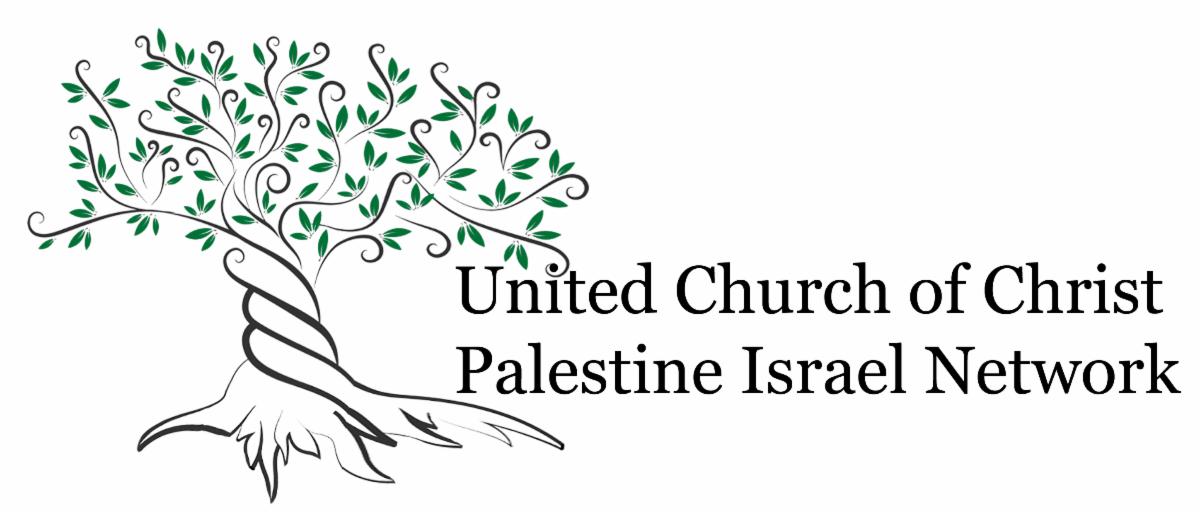 This declaration by the United Church of Christ Palestine Israel Network (UCC PIN), without specifically naming the 2005 BDS call from Palestinian society, affirms all three goals cited in that call: freedom from occupation, full equality for Palestinian citizens of Israel, and the right of return for Palestinian refugees. The statement declares: “the United Church of Christ Palestine Israel Network believes that the reality of Israel’s apartheid state, now fully exposed by the Nation State Law, requires use of the legal and analytical framework of apartheid if decolonization, genuine self-determination and full equality are to be actualized.
This declaration by the United Church of Christ Palestine Israel Network (UCC PIN), without specifically naming the 2005 BDS call from Palestinian society, affirms all three goals cited in that call: freedom from occupation, full equality for Palestinian citizens of Israel, and the right of return for Palestinian refugees. The statement declares: “the United Church of Christ Palestine Israel Network believes that the reality of Israel’s apartheid state, now fully exposed by the Nation State Law, requires use of the legal and analytical framework of apartheid if decolonization, genuine self-determination and full equality are to be actualized.
UCC PIN challenges their denomination to “strengthen our commitment to live into our past General Synod resolutions with greater diligence and follow through” and specifies actions of “economic leverage – boycotting products made in Israel’s illegal West Bank settlements, divesting from corporations profiting from the Occupation, and encouraging US sanctions against Israel – in order to pressure Israel to comply with international law.”
They also call on the 2019 General Synod to adopt the resolution “Addressing Global Forced Migration,” which the Synod subsequently did, and recommend that their denomination “not advocate for any one particular solution, whether two-state or one-state or something else….our attention and work should stay centered on the defense of human rights and on international humanitarian law.”
Download the statement
» BACK TO TOP «
World Council of Churches write and speak to UN on rising Israeli destruction and violence in Palestinian territory
The World Council of Churches (WCC) Ecumenical Accompaniment Programme in Palestine and Israel is reporting that nine homes in Wadi-Al-Hummus have been demolished, with at least two families forcibly removed from their home, as observed by Ecumenical Accompaniers on site. Over 100 families were removed altogether and prior to the demolitions.
At the 41st session of the United Nations Human Rights Council, held in Geneva on 24 June to12 July, WCC delivered a statement calling on the government of Israel to cease demolishing Palestinian homes and structures. In Wadi-Al-Hummus in southeast Jerusalem, 16 large buildings which are home to 500 Palestinian people were given demolition orders with a request to self-demolish by 18 July. The WCC has called the destruction in this village a “catastrophe for the community.”
Over two hundred people have already been displaced in East Jerusalem this year. Read the full report
WCC writes to United Nations’ leaders
8 August 2019 – WCC writes to UN High Commissioner for Human Rights and UN Special Rapporteur on the Palestinian Territory, saying that rising human rights violations in West Bank and East Jerusalem must stop. Ecumenical Accompaniers on the ground have witnessed frequent and systematic human rights violations and acts of violence. See the WCC report
Read the full text of the letter
» BACK TO TOP «
US and Palestinian Christians meet, address damage by U.S., commit to united actions
Ecumenical gathering affirms what would make for peace, addresses damaging steps by Trump Administration, including Bahrain economic workshop, and commits to united actions.
June 2019 – This special consultation was hosted by Churches for Middle East Peace (CMEP) and Bright Stars of Bethlehem and convened in cooperation with the National Council of Churches (NCC), World Council of Churches (WCC), and the Diyar Consortium. Building on previous gatherings at the Carter Center in Atlanta, in Washington, DC and in Houston, US and Palestinian Christians addressed the current context in Israel/Palestine, the US-sponsored economic workshop in Bahrain, and the elements necessary to reach a just and lasting peace for Israelis and Palestinians.
Read the full report
» BACK TO TOP «
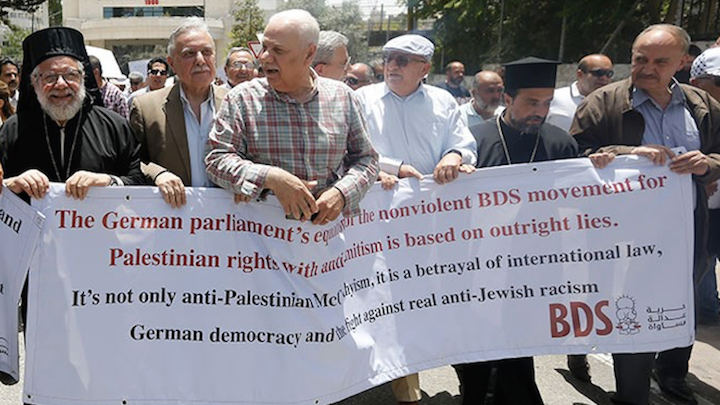 German Parliamentary resolution says BDS movement is anti-Semitic, compares it to Nazi-era; resolution condemned by Palestinian Christians and every sector of Palestinian society.
German Parliamentary resolution says BDS movement is anti-Semitic, compares it to Nazi-era; resolution condemned by Palestinian Christians and every sector of Palestinian society.
May 2019 – The German parliament has passed a resolution that denounces the BDS movement for Palestinian human rights as anti-Semitic and associates it with boycott actions during Germany’s Nazi era. It has generated a firestorm of response from Palestinians and human rights defenders. Kairos Palestine urges the Bundestag to reverse the resolution and asks: “What other avenue would our German brothers and sisters ask us to take in order to overcome this historic injustice…?” • See the BDS National Committee release • For more on this story, see the report from UMKR, with all statements from Palestinians and others, and op-eds.
A Call for the German Bundestag to Reverse its May 17, 2019 Resolution, “Resisting the BDS movement decisively – fighting antisemitism”
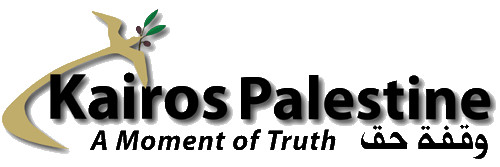 From Kairos Palestine
From Kairos Palestine
May 23, 2019 – Christians in Palestine are saddened and confused to learn of the German Bundestag’s passage of a resolution condemning the International Boycott, Divestment and Sanctions Movement (BDS) and making it equal to anti-Semitism. The Palestinian BDS movement embraces the logic of peaceful means of resistance against the ongoing occupation and the Israeli human rights violations and discriminatory measures against our people. It means inviting Israel to the ways of peace, even by instituting some kind of pressure to help the government to open its eyes and see the injustice it is imposing on another people, the Palestinians.
While the Bundestag intends to protect Israel, by the anti-BDS law; putting Israel above the law will not help Israel; on the contrary, by doing this you are justifying and legalizing its unjust measures against Palestinians and help them to sustain the occupation and state of war. Israel needs people and states who can help it reconcile with Palestinians and put an end to its permanent way of war.
Therefore, we ask with heavy-laden hearts, “What other avenue would our German brothers and sisters ask us to take in order to overcome this historic injustice, the uprooting of our trees, the confiscation of our land, the forced transfer of our people, the denial of our human rights, the indiscriminate killing and the denial of self-determination for Palestinians and their right to live in freedom and dignity, free of foreign control and occupation.?”
As to the false charge of anti-Semitism, the BDS movement is rooted in the Universal Declaration of Human Rights. It unconditionally opposes all forms of racism, including Islamophobia and anti-Semitism.
A just and peaceful resolution to our plight is only possible with international support. But Israel is able to whitewash its many abuses of human rights and violations of international law because the governments of the world have turned a blind eye to the plight of Palestinians and failed to hold Israel accountable. This is why, in the first place, we called and call on citizens of the world to embrace BDS as a way to hold Israel accountable and pressure it to move towards a just peace.
Regarding the resolution, “Resisting the BDS movement decisively—fighting antisemitism”, which singles out Palestinians, we ask you why there is no mention of:
● Israel’s strangling blockade of the Gaza Strip for 13 years;
● Israel’s declared annexation of Israeli settlements in the West Bank built on stolen Palestinian land;
● the daily humiliations to which our children are subjected at military checkpoints as they make their way to school; and to which women have become captive and restricted from accessing jobs and services;
● the unjust system of military law; a network of Israeli settler-only roads that restrict Palestinian movement and trade;
● and a separation wall judged by the International Court of Justice in 2004 as “a breach of international law”;
● the nearly 700 Palestinian children who annually are detained and prosecuted in the Israeli military court system, in contravention of international law;
● and most importantly the denial of the right of return, the right for reparations, and right to self-determination for Palestinians that will guarantee their dignity and freedom from foreign domination and occupation.
The State of Israel, institutions and companies that are complicit in the denial of Palestinians’ human rights are the targets of the BDS movement. Everyone has the right to criticize the unjust actions of a state and a corporation. The Palestinian BDS movement does not boycott or campaign against any individual or group simply because they are Israeli.
Finally, as written in the Palestinian churches’ cry for justice (www.kairospalestine.ps), we believe that every human being is created in the image of God and that love is seeing the face of God in every person. We wrote in Kairos Palestine document” We do not resist with death but rather through respect of life. And we affirm that every citizen must be ready to defend his or her life, freedom and land.”
Therefore, we join our Jewish, Muslim and Christian friends and people of good will around the world in calling on the Bundestag to revise its resolution and to realize that Israel needs friends who can pressure and advice it to take the road of real peace and reconciliation. “In the absence of all hope, we cry out our cry of hope. We believe in God, good and just. We believe that God’s goodness will finally triumph over the evil of hate and of death that still persist in our land. We will see here “a new land” and “a new human being”, capable of rising up in the spirit to love each one of his or her brothers and sisters”. (Kairos Palestine 10.)
Kairos Palestine document is the Christian Palestinians’ word to the world about what is happening in Palestine. It is written at the time when we wanted to see the Glory of the grace of God in this land and in the sufferings of its people. In this spirit Kairos Palestine requests the international community to stand by the Palestinian people who have faced oppression, displacement, suffering for more than seven decades. Our word is a cry of hope, with love, prayer and faith in God. We address it first of all to ourselves and then to all the churches and Christians in the world, asking them to stand against injustice, urging them to work for a just peace in our region.
Source: http://kairospalestine.ps/index.php/resources/statements/275-a-call-for-the-german-bundestag-to-reverse-its-may-17-2019-resolution
» BACK TO TOP «
Palestinians unanimously condemn German Parliament’s attack on the right to boycott Israel’s apartheid and colonization
 From the Palestinian BDS National Committee
From the Palestinian BDS National Committee
May 24, 2019 – Through statements issued by both the Palestine Liberation Organization, the sole legitimate representative of the Palestinian people, and Palestinian civil society groups, and protests at German Representative Offices in Ramallah and Gaza, Palestinians have unanimously condemned the German Parliament’s May 17 resolution that falsely labeled the Palestinian-led BDS Movement as anti-Semitic.
In a May 19 statement, The Executive Committee of the Palestine Liberation Organization called the German Parliament’s resolution “an attack against the Palestinian people and their legitimate and inalienable rights.” The PLO Executive Committee said that the BDS movement rejects “racism and discrimination,” and called “on the German Parliament to withdraw this decision,” and on “German parties to reject the decision.” They further warned that “the PLO’s Executive Committee will reconsider its relations with German unions, parties and institutions if Germany continues its complicity with the occupation and standing against our people’s rights.”
In a tweeted statement on May 17, the day of the Parliament’s resolution, the BDS Movement described the resolution as “based on outright lies. It’s not only anti-Palestinian McCarthyism, it is a betrayal of international law, German democracy and the fight against real anti-Jewish racism.”
At a protest with 200 participants on Wednesday, May 22 at the German Representative Office in Israeli-occupied Ramallah, Palestinian civil society groups delivered a letter signed by representatives of over 200 Palestinian civil society organizations. The civil society letter said that the groups “condemn in the strongest terms” the Parliament’s resolution, “reject the baseless allegations and fabrications of the Bundestag,” and call for the German Parliament to “repeal this anti-Palestinian, anti-Arab resolution.” A Thursday protest at Germany’s Representative Office in the Gaza Strip, where two million Palestinians live in an open-air prison under Israel’s siege, echoed those same messages.
The civil society letter said that, “Denying Palestinians the right to non-violently advocate for freedom, justice and equality is anti-Palestinian and puts the Bundestag at odds with international law, with universal democratic principles and even with the formal position of the European Union.”
Palestinian civil society groups reaffirmed the principles that the Palestinian BDS National Committee had laid out in 2017 statement entitled “Racism and racial discrimination are the antithesis of freedom, justice and equality”, saying that “the BDS movement rejects all forms of racism and discrimination, including Islamophobia, anti-semitism, sexism, anti-Black racism and homophobia, and is inspired by the South African anti-apartheid movement and the US civil rights movement. BDS targets complicity, not identity.” They called on “Germany to end all forms of complicity in Israel’s illegal occupation and apartheid by banning Israel’s illegal settlement products and services, ending all military trade and military research with Israel and supporting the suspension of the EU-Israel Association Agreement.”
A second Palestinian civil society letter, issued Thursday, called on “the German Government to refrain from adopting this resolution and passing it into law”, saying that doing so “would further threaten the relationship between Palestinian and German civil society.” The letter also called on the German government to impose a military embargo against Israel, and to cooperate to realize the rights of the Palestinian people, including the right of return of Palestinian refugees.
In another statement, the Palestinian Christian group Kairos Palestine said that, “Christians in Palestine are saddened and confused” by the German Parliament’s resolution. Kairos explained, “the State of Israel, institutions and companies that are complicit in the denial of Palestinians’ human rights are the targets of the BDS movement. Everyone has the right to criticize the unjust actions of a state and a corporation. The Palestinian BDS movement does not boycott or campaign against any individual or group simply because they are Israeli.”
The Palestinian BDS National Committee (BNC) is the largest coalition in Palestinian civil society. It leads and supports the global Boycott, Divestment and Sanctions movement for Palestinian rights.
Source: https://bdsmovement.net/news/palestinians-unanimously-condemn-german-parliament%E2%80%99s-attack-right-boycott-israel%E2%80%99s-apartheid
» BACK TO TOP «
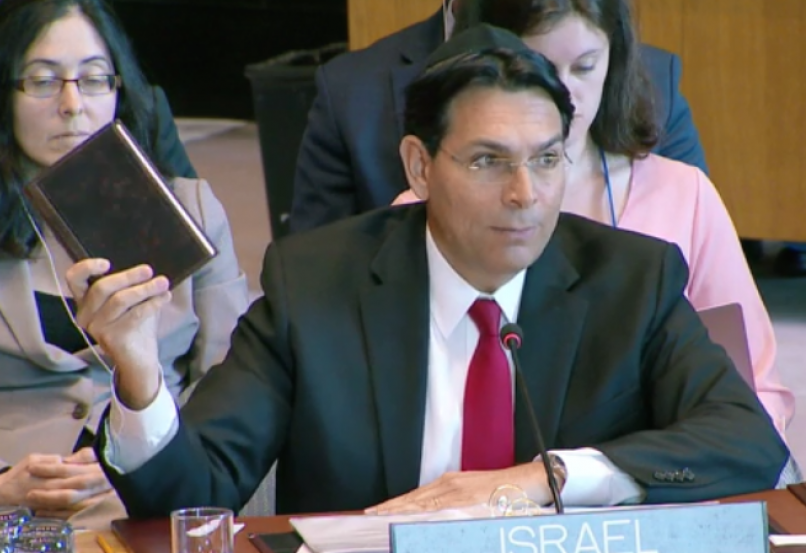 At United Nations, Israeli Ambassador Uses Bible to Justify Land Theft
At United Nations, Israeli Ambassador Uses Bible to Justify Land Theft
May 30, 2019 – It is deplorable and somewhat surprising to watch Danny Danon, Israel’s Ambassador to the United Nations, wave a Bible at a session of the Security Council to defend his country’s theft of Palestinian land in the West Bank. He is certainly inspired by his boss, Benjamin Netanyahu, who, although secular, quotes the Bible frequently to sell his expansionist agenda.
Read the full article at ChristianZionism.org
» BACK TO TOP «
Global Kairos Petition Delivered to Israeli Embassies across U.S.
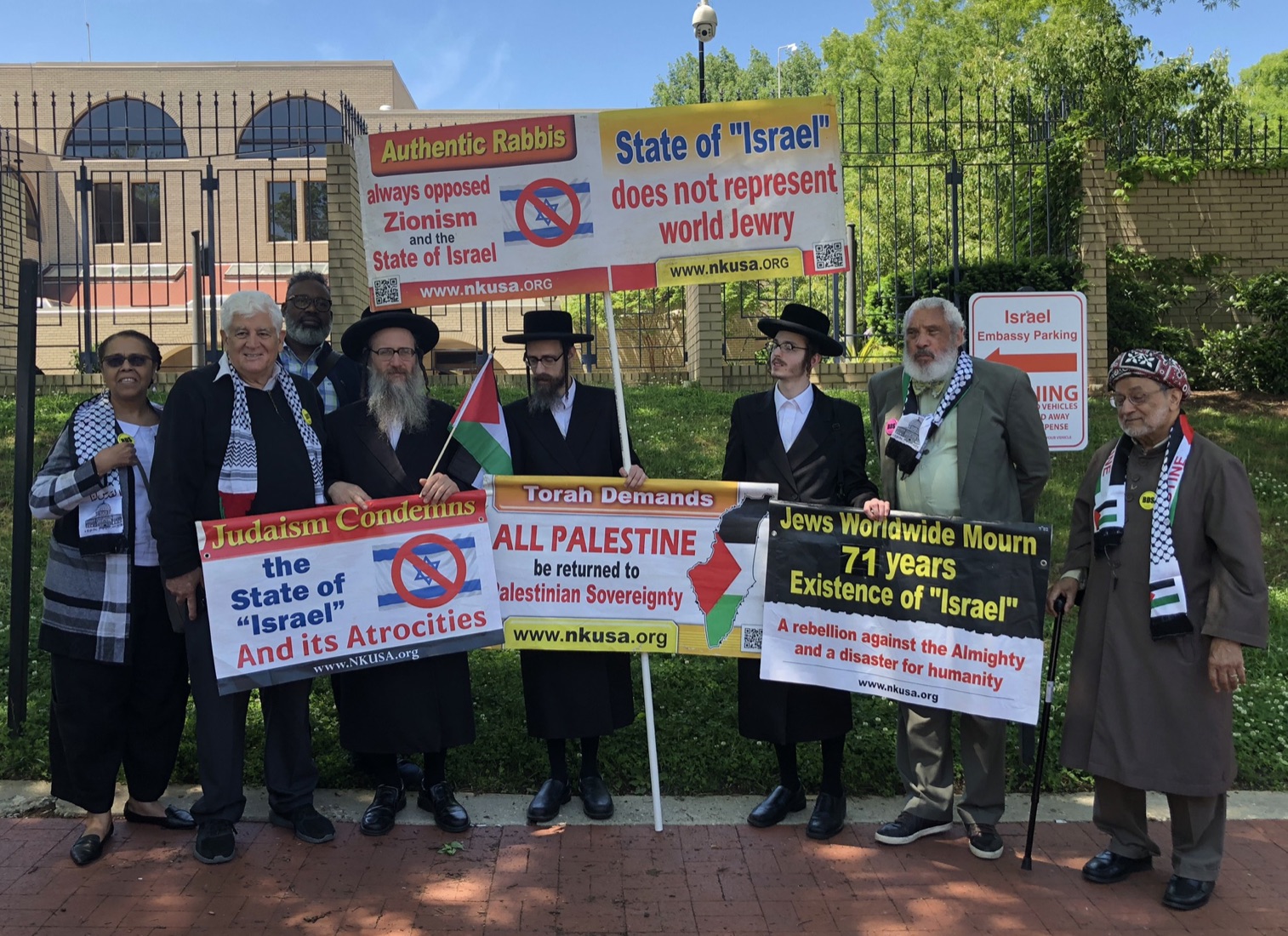 May 15, 2019 – On the 71st anniversary of the Nakba, the catastrophe of Palestinian exile and ethnic cleansing, a multi-faith delegation from around the Washington metro area gathered outside the Embassy of Israel to present the Global Kairos for Justice International petition to the government of Israel. The call for freedom and human rights was signed by over 3200 individuals and organizations from 51 countries. Today’s delivery was linked to similar global events simultaneously commemorating the Nakba with actions at government buildings, embassies and consulates, as well as conferences and marches. Read more of IPMN’s report
May 15, 2019 – On the 71st anniversary of the Nakba, the catastrophe of Palestinian exile and ethnic cleansing, a multi-faith delegation from around the Washington metro area gathered outside the Embassy of Israel to present the Global Kairos for Justice International petition to the government of Israel. The call for freedom and human rights was signed by over 3200 individuals and organizations from 51 countries. Today’s delivery was linked to similar global events simultaneously commemorating the Nakba with actions at government buildings, embassies and consulates, as well as conferences and marches. Read more of IPMN’s report
• Read EPF PIN’s reports on this action and another in New York City
• See all the actions FOSNA organized at Israeli embassies and consulates in the US
• Read and SIGN the Global Kairos Petition, from Kairos Palestine and its global partners
» BACK TO TOP «
Do No Harm! Palestinian Society Calls to All Tourists and Religious Pilgrims
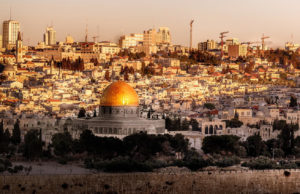 March 2019 – Palestinian civil society calls on all international visitors, especially pilgrims, and people of conscience to do no harm to our nonviolent struggle for our rights under international law by respecting our ethical tourism guidelines.
March 2019 – Palestinian civil society calls on all international visitors, especially pilgrims, and people of conscience to do no harm to our nonviolent struggle for our rights under international law by respecting our ethical tourism guidelines.
• Do not visit historical/religious/touristic sites…that are illegally run by the Israeli occupation authorities…
• Avoid products and services provided by Israeli or international companies that are complicit in Israel’s human rights violations…
• Pressure online tourism companies, such as Booking.com, Airbnb, Expedia and TripAdvisor…to stop operating in or promoting visits to illegal Israeli settlements…
• Boycott all LGBTQIA+ events organized by or in cooperation with the Israeli government or complicit Israeli institutions…
• Avoid any travel itinerary to present-day Israel or illegal Israeli settlements…
• Increase visits in solidarity with the Palestinian and Syrian people as well as independent…
SEE THEIR CALL
More on Responsible Tourism on Palestine Portal
See Upcoming Trips
» BACK TO TOP «
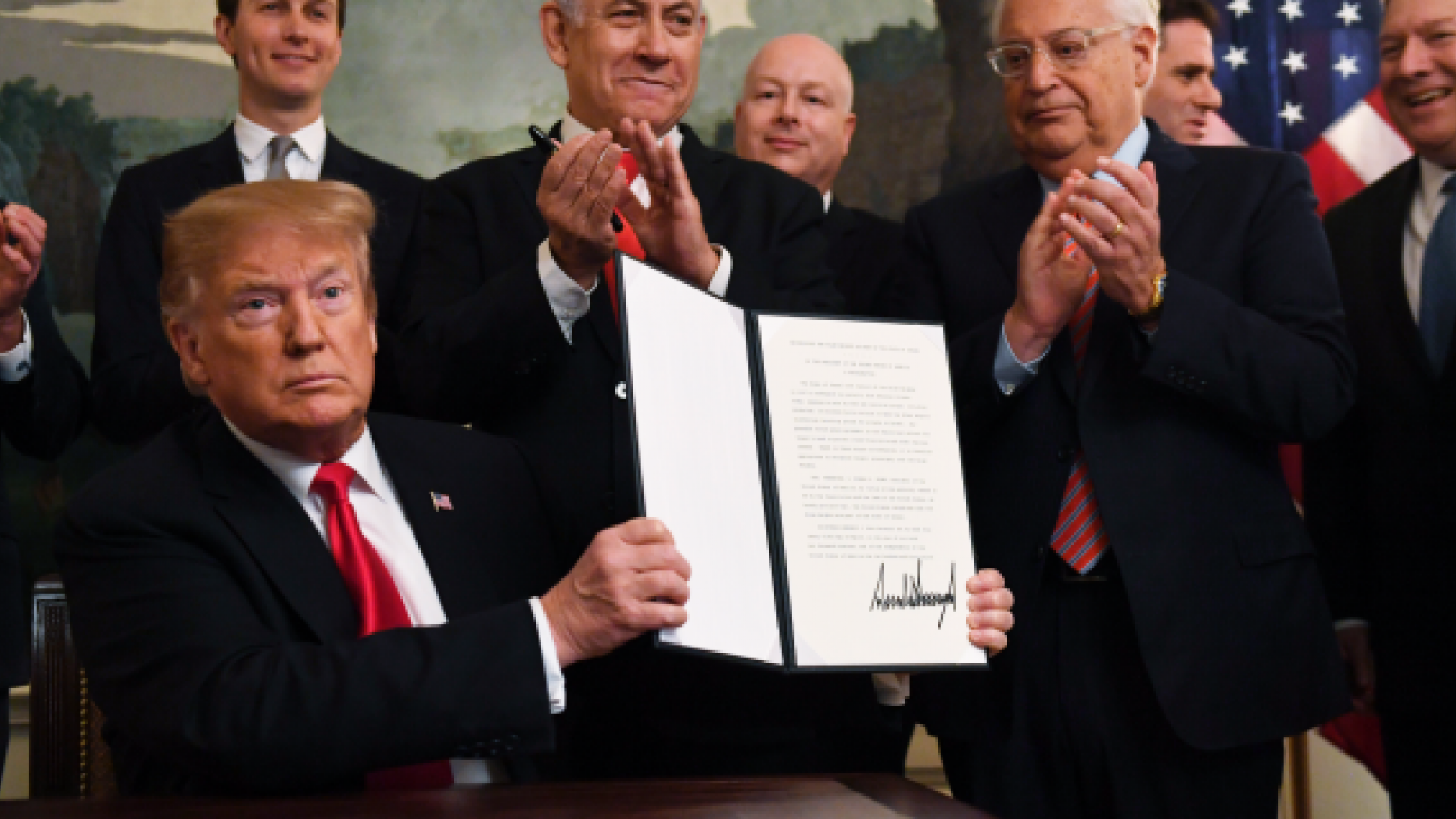 Churches and Christian Organizations Reject Trump’s Recognition of Israeli Annexation of Golan Heights
Churches and Christian Organizations Reject Trump’s Recognition of Israeli Annexation of Golan Heights
Following US President Donald Trump’s announcement and declaration recognizing Israeli sovereignty over the Golan Heights, US churches and Christian organizations issued the following statement on March 28, 2019.
This past Thursday, March 21, President Trump announced that the United States would recognize Israeli annexation and sovereignty over the Golan Heights. As US-based churches and Christian organizations with long histories of engagement in the Middle East through mission and ecclesial relations, we fully reject this unilateral declaration and are especially concerned about this Administration’s disregard for international law.
We see this reversal of consistent US policy and international consensus—that the Golan Heights are occupied and were acquired by force in the 1967 War in contravention of international norms—as an abandonment by the US of diplomacy to resolve such issues.
We have witnessed the Trump Administration’s approach to the Israel/Palestine over the past two years, and see this step as a continuation of the White House’s unwillingness to consider the implications of such actions for the possibility of a peaceful and just resolution to the region’s conflicts. The President’s recognition of Israeli annexation of the Golan Heights is similar in nature to his recognition of Israel’s claims over all of Jerusalem, both of which ignore the legitimate claims of Syria and Palestinians, respectively, despite Israel’s 1980-81 legislative actions claiming jurisdiction and administration over each of those geographies. These shifts in US rhetoric contravene United Nations rejection of Israeli claims and the acquisition of territory by force. We are further concerned that such a pattern does not bode well for the future of West Bank territory, also occupied by Israel. And we wonder about the timing of this announcement.
We recognize that, just because the US says it is so does not make it so, but we also acknowledge the disproportionate influence that US policy has in the region, and how US policies have not led to a just and peaceful resolution to the conflicts there. We urge the US to recommit to meaningful negotiations at appropriate times to resolve such matters based on international law and conventions, to involve all appropriate parties, to reject such unilateral actions by one party, and to refrain from making foreign policy statements that would unduly prejudice the outcomes of such diplomacy.
We also urge the US to support appropriate diplomatic efforts to resolve the crisis in Syria, which has led to more than half a million deaths and more than half the population being displaced. We recognize that negotiations over the possible return of the Golan Heights to Syria are not practicable at this time of uncertainty—all the more reason for the US to refrain from making such harmful declarations.
American Friends Service Committee
Christian Reformed Church in North America, Office of Social Justice
Evangelical Lutheran Church in America
Friends Committee on National Legislation
Global Ministries of the Christian Church (Disciples of Christ) and United Church of Christ
National Council of Churches of Christ in the USA
Presbyterian Church (USA)
Reformed Church in America
United Church of Christ, Justice and Witness Ministries
United Methodist Church General Board of Global Ministries
» BACK TO TOP «
Recognizing Israeli Annexation of Golan Heights Another Dangerous Example of One-Sided U.S. Policy
March 2019 – Churches for Middle East Peace (CMEP) issued a statement, saying that this decision “once again demonstrates the administration’s recklessly one-sided approach to Middle East foreign policy. Churches for Middle East Peace (CMEP) deplores the move as violating one of the cornerstones of post-World War II international law: the illegitimacy of territory gained through conquest.”
See the CMEP statement
» BACK TO TOP «
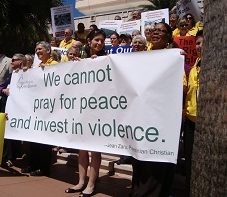 Mainline Protestants and Divestment as International Economic Activism
Mainline Protestants and Divestment as International Economic Activism
Maia Hallward
By permission of Oxford University Press
Online Publication Date: Feb 2019
DOI: 10.1093/acrefore/9780190228637.013.689
Summary
Mainline Protestant denominations in the United States have a history of using divestment as an economic form of nonviolent moral activism. While such activism can have a domestic focus, at times church divestment efforts have emphasized foreign policy issues as an extension of church activism in the areas of social justice and moral reform. Churches have used economic activism such as divestment from apartheid South Africa and investment screens to prevent church pension and other funds from being used for products and services—such as alcohol, tobacco and munitions—deemed “immoral” by church bodies. The case of the Israeli-Palestinian conflict illustrates the broader themes and tensions involved in church divestment debates, given the media coverage that has been generated by the topic due to the special relationship between Christians and the holy land and the troubled history of Christianity and anti-Semitism.
Some Protestant denominations, particularly those with a history of engagement in Israel/Palestine, have responded to the Palestinians’ call for boycott, divestment, and sanctions (BDS) to advance their freedom and human rights. However, such responses have not been immune from debate and controversy. Some mainline Protestant denominations, including the Presbyterian Church USA (PCUSA), the United Methodist Church, and the Episcopal Church have debated resolutions dealing with church divestment from companies profiting from Israel’s occupation of Palestinian territories. Such resolutions have resulted in pushback from some parties, including efforts to criminalize boycott of Israel.
Download this article (26 pages)
» BACK TO TOP «
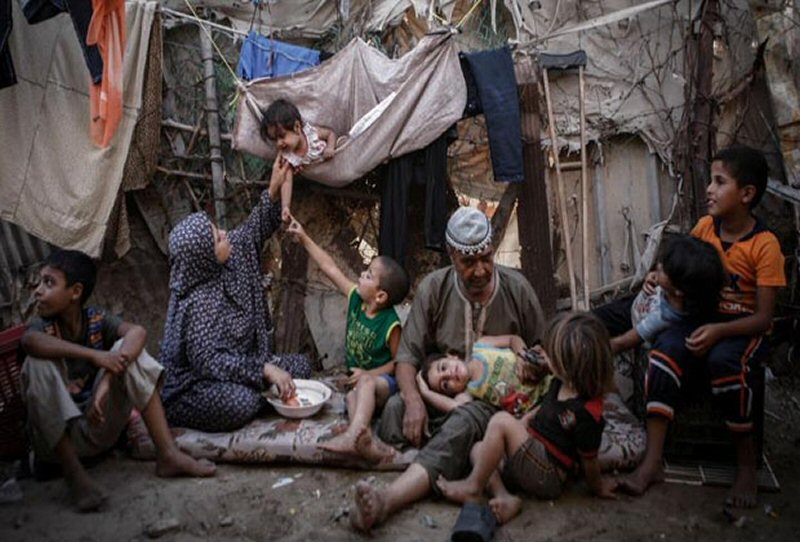
Two Ecumenical Calls for Funding UNRWA, to U.S. President and Congress
February 2019 – Fourteen US Churches and Church bodies have joined together to send a letter to President Donald Trump calling on him to reverse the recent U.S. decision to cut funding to the United Nations Relief and Works Agency. UNRWA provides vital funding to millions of Palestinian refugees throughout the Middle East and funding cuts will have a devasating impact on already vulnerable communities.
The full text of the letter:
February 6, 2018
President Donald J. Trump
The White House
1600 Pennsylvania Avenue NW
Washington, DC 20500
Dear President Trump:
As Christian denominations and organizations concerned about and working in the Middle East, we are writing to express our dismay at the recent decision to withhold $65 million in U.S. funding for the United Nations Relief and Works Agency for Palestine Refugees in the Near East (UNRWA).
The humanitarian impact of these cuts will be devastating. Many of our agencies and local partners know firsthand the important role that UNRWA plays in providing assistance to Palestine refugees in Lebanon, Jordan, Syria, the West Bank and Gaza. More than half a million Palestinian children are educated in UNRWA schools. Half of Gaza’s population receive food assistance from UNRWA. Hundreds of thousands of people each year rely on health services provided by UNRWA clinics. These already-vulnerable communities will be forced to suffer even more if these unconscionable cuts are not restored.
Secondly, we are deeply concerned by the politicization of humanitarian aid that is evident in this decision. The U.S. government has long maintained that “a hungry child knows no politics” and while this has not always been carried out perfectly, it has remained as an important guideline for U.S. policymakers. Humanitarian aid must be provided to civilians on the basis of need alone, not used as a way to attempt to extract concessions from political leaders. We are also concerned that this action could lead to a trend toward politicizing humanitarian aid to other vulnerable communities around the world and would erode U.S. reliability and credibility internationally.
Thirdly, the effort to withhold funds from UNRWA appears to be part of a series of actions to deny basic rights to Palestinians—in this case, their fundamental rights as refugees under international law. We yearn deeply for the day when UNRWA will no longer need to exist, but this must be the result of a negotiated resolution of the conflict, based on international law, that is fair and just for both Palestinians and Israelis. It cannot come through unilateral decisions by the United States to deny the rights of Palestinians.
We stand ready to work with you and all who seek a more just and peaceful future for all peoples in the region. In the meantime, we urge you to restore immediately full U.S. funding to UNRWA.
Sincerely,
- Alliance of Baptists
- American Friends Service Committee
- Church of the Brethren, Office of Public Witness
- Evangelical Lutheran Church in America
- Global Ministries of the Christian Church (Disciples of Christ) and United Church of Christ
- Maryknoll Office for Global Concerns
- Mennonite Central Committee U.S.
- Office of Social Justice; Christian Reformed Church
- Pax Christi International
- Pax Christi USA
- Presbyterian Church (U.S.A.)
- Reformed Church in America
- United Church of Christ, Justice and Witness Ministries
- United Methodist Church, General Board of Church and Society
_____________________________________________
March 2019 – Nineteen faith organizations and denominations have sent an open letter to the U.S. Congress, stating: “humanitarian assistance must be provided on the basis of need alone; it is unconscionable and against universally-agreed humanitarian principles to withhold aid to extract concessions from political leaders.”
The full text of the letter:
March 25, 2019
Dear Members of Congress:
We are writing as church communions and organizations, many with a long history of involvement and work in the Middle East. Over the past year we have witnessed the negative impacts of the Trump administration’s decision to cut funding to the United Nations Relief and Works Agency for Palestine Refugees (UNRWA) and to withhold bilateral Economic Support Funds (ESF) for the West Bank and Gaza.
The vital services and programs provided by UNRWA and through ESF funds to the region include food assistance, health care, education and clean water. As a result of the cut-off of funds, we are receiving reports that classrooms are more crowded, food assistance has been reduced and some medical services such as dialysis treatments have been suspended or are no longer available. The humanitarian situation in Gaza, including the lack of clean water and electricity, is particularly dire and has been exacerbated by the reduction in U.S. funding.
Denying basic services to vulnerable populations will not bring about peace and security for anyone in the region. Furthermore, humanitarian assistance must be provided on the basis of need alone; it is unconscionable and against universally-agreed humanitarian principles to withhold aid to extract concessions from political leaders. We are greatly concerned by the Administration’s trend toward politicizing humanitarian assistance globally.
We yearn deeply for the day when UNRWA will no longer need to exist and when Palestinian communities will no longer need humanitarian assistance. But this can only result from a negotiated resolution of the conflict that is fair and just for both Palestinians and Israelis, including an end to Israeli military occupation.
Congress has consistently appropriated funds for UNRWA and bilateral ESF assistance to the West Bank and Gaza in previous fiscal years. We strongly support the disbursement of these funds as intended and the inclusion of this funding in the Fiscal Year 2020 appropriations process.
Sincerely,
- American Friends Service Committee
- Church World Service
- Churches for Middle East Peace
- Conference of Major Superiors of Men (Catholic)
- Dept. of Inter-Orthodox, Ecumenical & Interfaith Relations of the Greek Orthodox Archdiocese of America
- The Episcopal Church
- Evangelical Lutheran Church in America
- Friends Committee on National Legislation
- Global Ministries of the Christian Church (Disciples of Christ) and United Church of Christ
- Maryknoll Office for Global Concerns
- Mennonite Central Committee U.S. Washington Office
- Office of Peacebuilding and Policy, Church of the Brethren
- Office of Social Justice, Christian Reformed Church in North America
- Pax Christi International
- Pax Christi USA
- Presbyterian Church (USA)
- Reformed Church in America
- The United Methodist Church, General Board of Church and Society
- Unitarian Universalist Association
» BACK TO TOP «
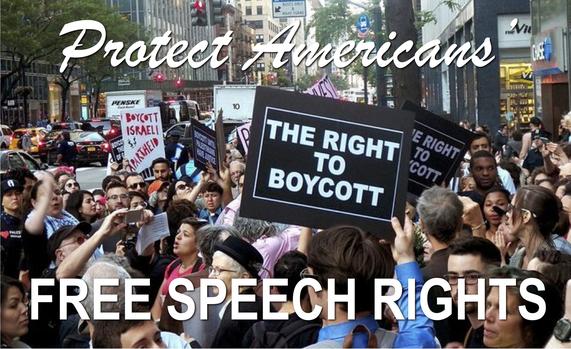 Fifteen Faith Groups Warn Americans: our right to free speech is under attack
Fifteen Faith Groups Warn Americans: our right to free speech is under attack
January 2019 – Fifteen faith organizations issued a statement calling for Americans to oppose “anti-BDS legislation” such as the [then] pending Senate resolution S.1: “Strengthening America’s Security in the Middle East Act of 2019.” This bill seeks to provide legality for unconstitutional laws adopted in dozens of U.S. states that penalize Americans – often by denying them access to jobs, contracts, and other opportunities the state offers – if they support boycotts addressing Palestinian human rights or if they simply refuse to pledge in writing that they do not support such boycotts. The Supreme Court has made clear that political boycotts are a form of speech protected by the First Amendment of the Bill of Rights.
The full text of the statement:
Unite to Protect Americans’ Right to Boycott
JANUARY 2019 – We are members of faith communities in the United States whose congregations or denominations have adopted resolutions to boycott products made in Israeli settlements—built on occupied Palestinian lands in violation of international law and longstanding official U.S. policy—or have implemented a screen to divest from companies that profit from the decades-old Israeli military occupation of Palestine. These resolutions affirm our commitment to a just peace for all Palestinians and Israelis.
We are alarmed by attempts to pass legislation in the U.S. Congress that would provide legal protection for states that are penalizing participation in the nonviolent, grassroots Boycott, Divestment, and Sanctions (BDS) movement for Palestinian rights.
The U.S. Supreme Court has established that boycott actions addressing injustice are a protected form of speech under the First Amendment of the U.S. Constitution and that American citizens are free to express their political and ethical beliefs by engaging in such boycotts.
Nevertheless, twenty-six states have instituted legal provisions that would penalize Americans – often by denying them access to jobs, contracts, and other opportunities the state offers – if they support boycotts addressing Palestinian human rights or if they simply refuse to pledge in writing that they do not support such boycotts. Restricting American citizens’ access to those opportunities on the basis of our political beliefs is a severe violation of our first amendment rights.
As of November 2018, thirteen other states have considered or are considering placing restrictions on their citizens’ right to support such boycotts.
The first bill introduced in the U.S. Senate in 2019, S.1 – Strengthening America’s Security in the Middle East Act of 2019, seeks to provide legality for these unconstitutional state provisions. Thus far, this bill has failed to garner sufficient support in the Senate, but that failure was on tactical grounds related to the government shutdown, and the legislation is very likely to be reintroduced.
The American Civil Liberties Union (ACLU) issued a recent statement about this bill that reads, in part, as follows:
In the midst of a partial government shutdown, Democratic and Republican senators have
decided that one of their first orders of business should be to sneak through a bill that would weaken Americans’ First Amendment protections. The bill, Combatting BDS [Boycott, Divestment, and Sanctions] Act, encourages states to adopt the very same anti-boycott laws that two federal courts blocked on First Amendment grounds.
Anti-BDS legislation effectively penalizes actions taken by the Presbyterian Church (U.S.A.), the United Methodist Church, the Mennonite Church USA, the United Church of Christ, and other denominations; and tens of thousands of Muslim, Jewish, Christian, and secular Americans who support boycotts and divestment aimed at ending Israel’s violations of Palestinian human rights.
As faith leaders, we have long used the nonviolent instruments of boycott and divestment in our work for justice and peace. These economic measures have proven to be powerful tools for social change, from strengthening labor rights for farm workers to ending apartheid in South Africa. As has been warned by the ACLU and other civil liberties groups, anti-BDS legislation is an extremely grave attack on free speech that threatens the use of boycotts, divestment, and sanctions for other peace and human justice causes.
WE CALL ON ALL AMERICANS to join us and the ACLU in defending our First Amendment right to freedom of speech. Urge your Senators to reject anti-BDS legislation as an infringement on the rights of American citizens.
Signed,
The Alliance of Baptists
American Friends Service Committee – AFSC
Disciples Palestine Israel Network of the Christian Church (Disciples of Christ)
The Episcopal Peace Fellowship’s Palestine Israel Network- EPF-PIN
Friends of Sabeel North America – FOSNA
Israel Palestine Mission Network- Presbyterian Church (USA)
Kairos USA
Mennonite Palestine Israel Network – MennoPIN
Palestinian Christian Alliance for Peace – PCAP
Quaker Palestine Israel Network – QPIN
Unitarian Universalists for Justice in the Middle East – UUJME
Palestine Israel Action Group (PIAG) of Ann Arbor Friends Meeting (Quakers)
United Church of Christ Palestine Israel Network – UCCPin
United Methodists for Kairos Response – UMKR
Endorsed by:
American Muslims for Palestine – AMP
» BACK TO TOP «





